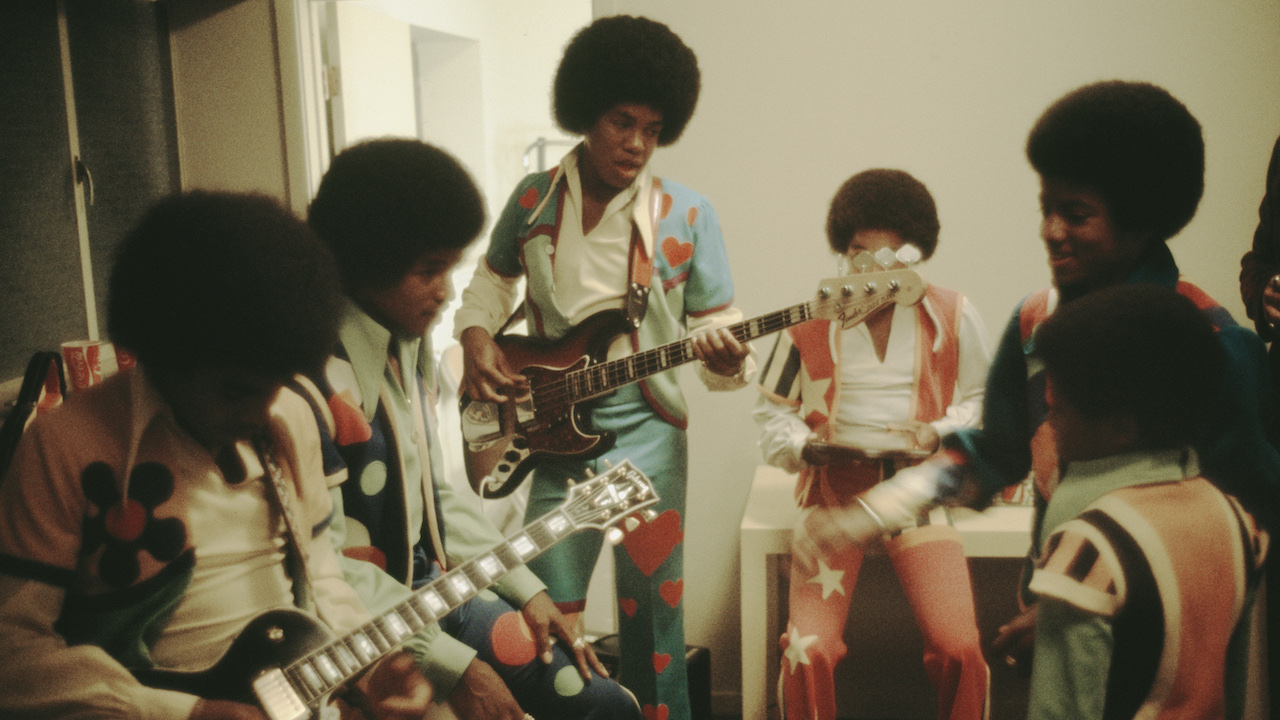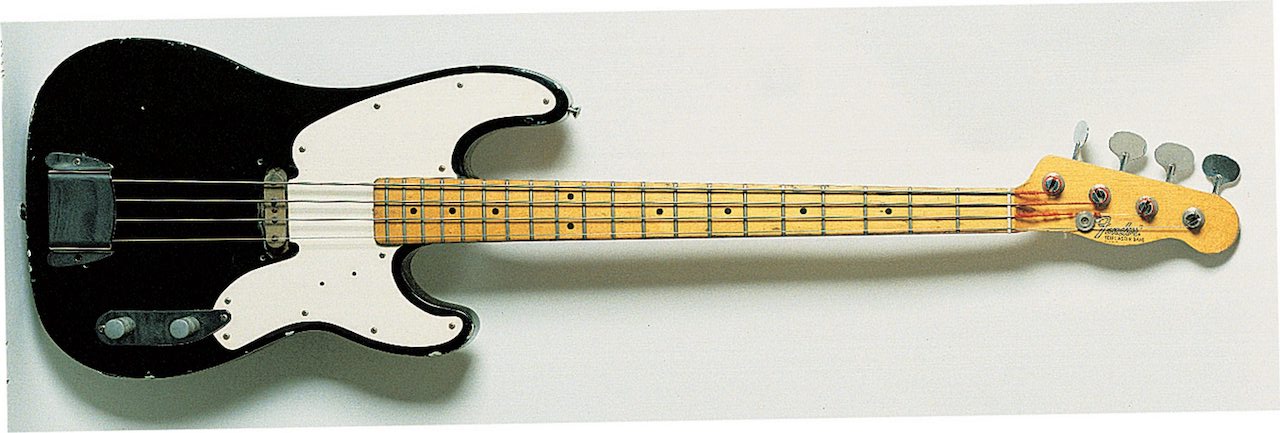Who really played bass on I Want You Back by The Jackson 5?
Motown producer Berry Gordy wouldn't allow Jermaine Jackson to record on their 1969 hit. So who played bass?

It was October 1969 that The Jackson Five made their national television debut on ABC’s Hollywood Palace. As the bass-playing older brother of Michael (seen plucking a Gibson EB-3 bass in this early clip), Jermaine Jackson mastered the group’s signature dance moves on what would be the first of four consecutive number-one-hits for Motown Records.
A standout track from their debut album, Diana Ross Presents the Jackson 5, 'I Want You Back' was written by a team of writers called The Corporation, but there’s been some debate surrounding who played bass. It’s been said that when the group signed with Motown, producer Berry Gordy wouldn't allow them to record on their own songs, with the recordings instead handled by Motown's in-house studio band and legendary bassist James Jamerson.
Forward to 02:45 to see Jermaine Jackson with his Gibson EB-3
Contrary perhaps to popular belief, the iconic 'I Want You Back' bassline was actually recorded in LA by Wilton Felder. Primarily a saxophone player, Felder discussed recording the bassline in the July 1998 issue of Bass Player magazine.

“The bass part, which essentially mirrors and counters the melody, was mostly written out," said Felder. "I added just a bit of myself to it. As a sax player, I related to the line’s hip chromatic movement - but being self-taught, I found the fingerings a bit intimidating.”
For the recording Wilton played a 1968 Fender Precision Bass, which was a a re-issue of the 1951 ‘Telecaster’ design and featured a single-coil pickup and the original Precision headstock.

A renowned saxophone player for The Crusaders, Wilton Felder later became the in-house bassist for Motown once they relocated to Los Angeles. His recording credits range from The Jackson 5, to Marvin Gaye, to Billy Joel and countless others.
Jermaine later became a successful solo artist who stayed at Motown when his brothers left for Epic. He was replaced in the group by youngest brother Randy before rejoining in 1983.
Diana Ross Presents the Jackson 5 is available now on CD, and as a digital download
Get The Pick Newsletter
All the latest guitar news, interviews, lessons, reviews, deals and more, direct to your inbox!

Nick Wells was the Editor of Bass Guitar magazine from 2009 to 2011, before making strides into the world of Artist Relations with Sheldon Dingwall and Dingwall Guitars. He's also the producer of bass-centric documentaries, Walking the Changes and Beneath the Bassline, as well as Production Manager and Artist Liaison for ScottsBassLessons. In his free time, you'll find him jumping around his bedroom to Kool & The Gang while hammering the life out of his P-Bass.
“I asked him to get me four bass strings because I only had a $29 guitar from Sears”: Bootsy Collins is one of the all-time bass greats, but he started out on guitar. Here’s the sole reason why he switched
“I got that bass for $50 off this coke dealer. I don’t know what Jaco did to it, but he totally messed up the insides!” How Cro-Mags’ Harley Flanagan went from buying a Jaco Pastorius bass on the street to fronting one of hardcore’s most influential bands

![A black-and-white action shot of Sergeant Thunderhoof perform live: [from left] Mark Sayer, Dan Flitcroft, Jim Camp and Josh Gallop](https://cdn.mos.cms.futurecdn.net/am3UhJbsxAE239XRRZ8zC8.jpg)








